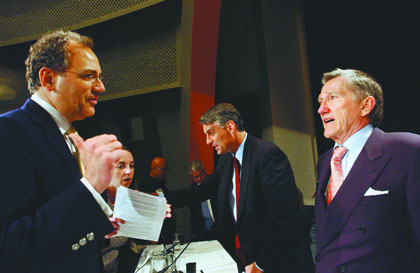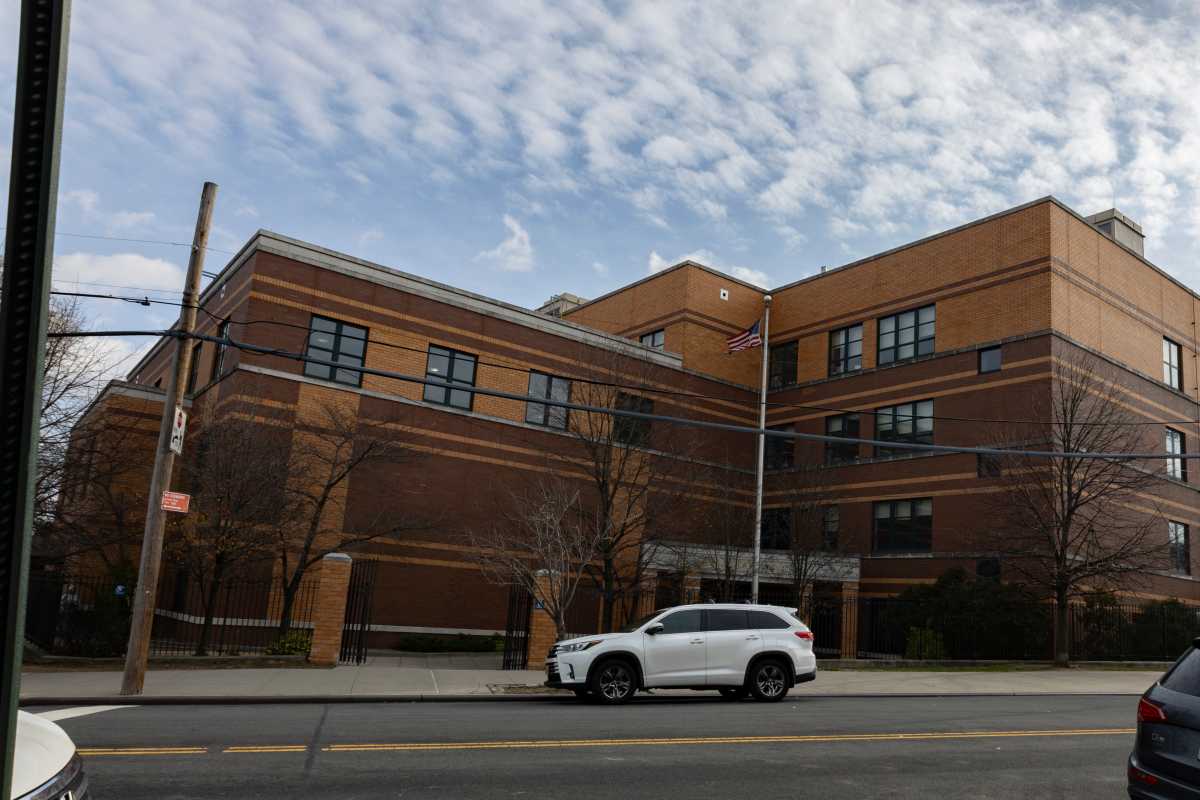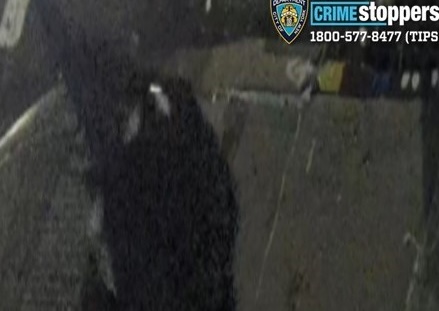By Josh Rogers
The federal commission studying the 9/11 attacks came to New York this week and the reactions to the hearings ranged from anger to tears to the feeling from at least a few that the panel asked some good questions.
The most heated exchange came when John Lehman, secretary of the Navy for most of the Reagan administration years, told former Mayor Giuliani’s police, fire and emergency management commissioners that the city’s command and communications systems were a scandal and “not worthy of the Boy Scouts, let alone this great city.”
Immediately after that hearing on May 18, Lehman, responding to the angry reaction from Giuliani officials, told Downtown Express: “They missed the point. I wasn’t criticizing them. I was criticizing the system they were working under.”
Rudy Giuliani, who received much gentler questions the next day, said at a press conference after his testimony that he thought Lehman should apologize because any mistakes made on Sept. 11, 2001 were because of chaos as uniformed officers sacrificed their own lives to save thousands of others.
Communication fight
Thomas Von Essen, former fire commissioner, told Lehman, “I think it’s outrageous that you’d make a statement like that.”
“We are no different than any other city and if you think we are, you’re being foolish,” Richard Sheirer, former commissioner of the Office of Emergency Management, told Lehman.
Sheirer said he has listened carefully to all of the tapes of the police and fire communications, and there was no evidence of the departments not working together on Sept. 11.
But Dennis Smith, a former firefighter who like Sheirer was at the scene, said that the reason 343 firefighters died on Sept. 11 as compared with 23 police officers, was that many firefighters in the towers did not hear orders to evacuate. “A N.Y.P.D. helicopter reported early, before the fall of the South Tower, that the North Tower was going to fall, but the fire chiefs didn’t hear this,” Smith, who has published a book on the subject, testified.
Von Essen said all of the different types of communication equipment failed at different times during the day. “Nothing worked all of the time,” he said. “Everything worked some times.”
Police Commissioner Bernard Kerik said no company makes a communication device yet that will work in every type of emergency.
The commissioners avoided asking Giuliani questions about the communication equipment, prompting some members of the audience to call out, “ask him about the radios” at the end of the former mayor’s testimony. The 10-member, bipartisan commission was appointed by President Bush and Democratic Congressional leaders and is expected to issue a report with anti-terrorism recommendations by July 26.
Family tears
The commission’s staff also showed a video report, which included footage of the planes hitting the towers and moved many family members of the victims to tears.
Charles Wolf, 50, whose wife Katherine, 40, was killed in the North Tower, left the room in tears during the break.
“The whole thing of the rescuers – the Fire Dept. got me,” Wolf said in the hallway at New School University, site of the hearing “The fact that they went in so selflessly.”
Ann Marie Mauro, whose brother died in the attack, said she had never heard the sounds of the plans hitting the buildings until watching Tuesday’s video. “It just went though my body,” she said
Wolf said in many ways he has moved forward with his life but he still cries sometimes, such as recently when he was walking down the street with his girlfriend and he saw a fire engine with the names of dead firefighters written on it.
After the first day of hearings, Wolf said he liked the direction the commission was going, although he did think Lehman went a little too far.
Robin Forst, a Battery Park City resident who attended Tuesday’s hearing, said she thought the commissioners are “asking the right questions, they’re just not getting the right answers.” She has concerns about the 9-1-1 system.
She said seeing the images of the planes Tuesday reminded her of all the emotions from three years ago. “I haven’t seen them in a long time,” said Forst, who is now deputy chief of staff to Councilmember Alan Gerson. ”Seeing them again brought it all back.”
On Sept. 11, 2001, primary election day, Forst was standing near the towers campaigning for Gerson when the first plane hit. She went back to her Gateway Plaza apartment and was evacuated to New Jersey, while her son and his classmates at P.S. 234 in Tribeca were taken up to the Village.
7 W.T.C.
Forst said she was glad Giuliani aides were asked about the mayor’s decision in the late ‘90s to place an the emergency command center at 7 W.T.C., across the street from the Twin Towers.
The building collapsed the afternoon of Sept. 11 because of a fire started by the Twin Towers attack. Investigators believe the fire was spread by the diesel fuel stored by the O.E.M. center. No deaths on 9/11 were connected to the collapse of 7 W.T.C.
Many people opposed moving the center out of police headquarters to the location because of the 1993 terrorist bombing at the trade center.
“For those of us who lived through it in ’93, we were very surprised that they decided to locate it there,” Forst said.
When one panel member, Tim Roemer, asked Sheirer why an emergency center was put near a site that had already been targeted, Sheirer said: “ I did not agree with it for the very reasons you said.”
He said the center did have advanced technology that was a tremendous improvement over the Police Plaza site. After the hearing, Sheirer said he did express his concerns to Giuliani at the time.
Giuliani said during a press conference Wednesday that “in retrospect” he wouldn’t have moved the center to 7 W.T.C. but the building was attractive because it also had C.I.A. and Secret Service offices.
Moving account
During his testimony, he urged the commissioners to recognize that although mistakes may have been made on 9/11, there was every reason to expect as many as 15,000 deaths, not 3,000, and in addition, the courage showed by the rescue workers inspired the nation.
“We’re all hurt,” he said. “We’re all damaged. We’re all very, very angry. And we’re all feeling the loss of heroes that we love.”
He gave a compelling account of what he saw that day telling the commissioners of the horror he felt when he saw a body fall from one of the towers. He told of heading north in search of a new command center with Kerik and other top aides and made light of the commission’s inquiries into rivalries between the Police and Fire Departments.
He said police officers “broke into” a firehouse on Houston St. so that everyone could regroup. “They were not trying to destroy Fire Dept. property,” Giuliani said.
The commission had revealed numerous problems with the 9-1-1 calling system the day before and Giuliani acknowledged that the system should have been expanded sooner.
“Should it have been larger,” he asked. “Should it have been anticipated? Yes it probably should have.”
Sally Regenhard, whose son was a firefighter killed on 9/11, held up “lies” and “fiction” signs during the hearings. She said she was outraged that the officials weren’t more willing to acknowledge communication breakdowns “It was the greatest failure and for them to say everything was hunky dory was outrageous,” Regenhard said.
Lehman likened the communication problems to conflicts that used to occur between the Army, Navy, Air Force and Marines.
New emergency rules
Lehman and a few other commissioners said the new emergency rules recently adopted by Mayor Mike Bloomberg set up a confusing system in which a different agency takes the lead in different types of emergencies. He said the new system requires a “Talmudic scholar” to figure out who is in charge
Joseph F. Bruno, the city’s current O.E.M. commissioner, said police, fire and emergency commanders will all be in the same place communicating under the new system and it is best to let each agency do what it does best, such as letting police officers handle crime scenes and sealing off locations and letting firefighters battle blazes and conduct search and rescue missions.
“That’s just how things work,” Bruno said.
Giuliani said Bloomberg’s new system looks sensible as long as it is clear that it is the job of the senior Office of Emergency Management officials on the scene to resolve any jurisdictional disputes between the responders.
“You have to have a very strong O.E.M.,” he said.
Bloomberg also testified on Wednesday, but commission members didn’t ask him any questions because they were pressed for time. Thomas Kean, the commission’s chairperson and the former governor of New Jersey, said members would follow up with him in private.
Bloomberg told reporters outside the hearing that, “It is the O.E.M.’s job to make sure that the ranking officers at the incident come to an agreement based on their core competencies, of who is going to do what,” but that the agency had to also be able to let police and fire personnel do their job.
“I do not want a second, third or fourth-level person from a third agency telling those with the expertise — who are directing those in the building, saving lives, putting their own lives at risk — how to go about their jobs.”
Kerik and the current police commissioner, Raymond Kelly, both said the reports of long-running disputes between police and firefighters had been exaggerated.
“There have been some incidents,” Kelly told the 9/11 Commission. “They have been few and far between and they are overblown.”
He said the 9-1-1 system has improved and operators were now capable of getting information from the Fire Dept. and passing on emergency instructions to callers trapped in the middle of an emergency. But when one panel member, Slade Gorton asked if the problem was cured, Kelly didn’t say yes.
“ ‘Cured’ is an awfully strong word,” Kelly said. “We have the capacity.”
Kelly told commissioner Bob Kerrey, former Nebraska senator and president of the New School that he thought city hospitals would have difficulty handling a biological attack that affected 10,000 people at the same time.
N.Y.C. anti-terror money
Kerrey and most of the other commissioners said it was essential that the city get more anti-terror funds from Washington since most of the witnesses said New York remained the most likely target.
“God help Congress and the administration if for a third time the city is attacked, and more people die, and we’re left again with hearings,” Kerrey said, drawing applause from the audience.
Chairperson Kean told another witness, Tom Ridge, secretary of the Dept. of Homeland Security, “any allocation which doesn’t give New York more per capita than any other place, doesn’t make sense.”
Ridge said the Bush administration was trying to increase the funding for the city although he did not endorse Kean’s per capita suggestion.
Mayor Bloomberg said that New York ranked 49th out of 50 states in per capita Homeland Security funds and blamed the problem on Congress calling it “pork barrel politics at its worst.”
The only 9/11 commissioner who expressed reservations about giving New York too much money was James Thompson, former governor of Illinois, who said there was a danger of “fighting the last war.”
Terror warnings
Giuliani said he had been getting strong security warnings from the F.B.I. as far back as 1997 and in response to specific information, he mentioned three locations – all in Lower Manhattan – where he tightened security and closed off streets or other areas – the New York Stock Exchange, City Hall, and the Metropolitan Correction Center where Al Qaeda operatives later convicted of bombing U.S. embassies in Africa were detained.
Although a staunch supporter of President Bush, one piece of Giuliani’s testimony appeared to bolster Richard Clarke, Bush’s former anti-terror czar and current critic.
Giuliani said in the summer of 2001, when it is now known that federal officials were on high alert and particularly worried about a pending terrorist attack, he did not receive anything to suggest there was more of a sense of urgency. He said the only time he remembers receiving stepped up warnings from Washington was during the months leading up to the 2000 New Year’s celebration.
Clarke told the commission several weeks ago that in the lead-up to the New Year’s celebration, regular meetings in the Clinton White House put law enforcement on high alert across the nation and led to foiling Al Qaeda’s Millennium plot to attack Los Angeles. Terrorists were caught entering the country at the Canadian border in Washington State at the end of 1999.
Giuliani did say that if he had more warnings in 2001, he probably would not have changed what the city was doing since officials had been on high alert for years.
He said over the years, the most persistent warnings he received were possible attacks at bridges, tunnels and subways, followed by well-known buildings. He said F.B.I. director Robert Mueller is doing a good job of allowing the agency to share more information with the N.Y.P.D. Historically, the fear is that local police departments will leak information, but Giuliani said there are leaks everywhere, including the F.B.I.
“It comes out anyway, so you might as well give it to law enforcement early,” he said.
WWW Downtown Express



































